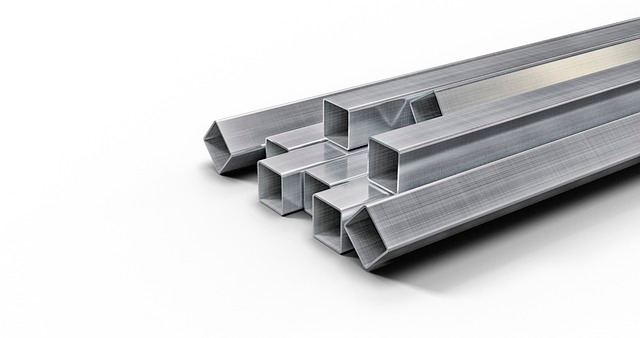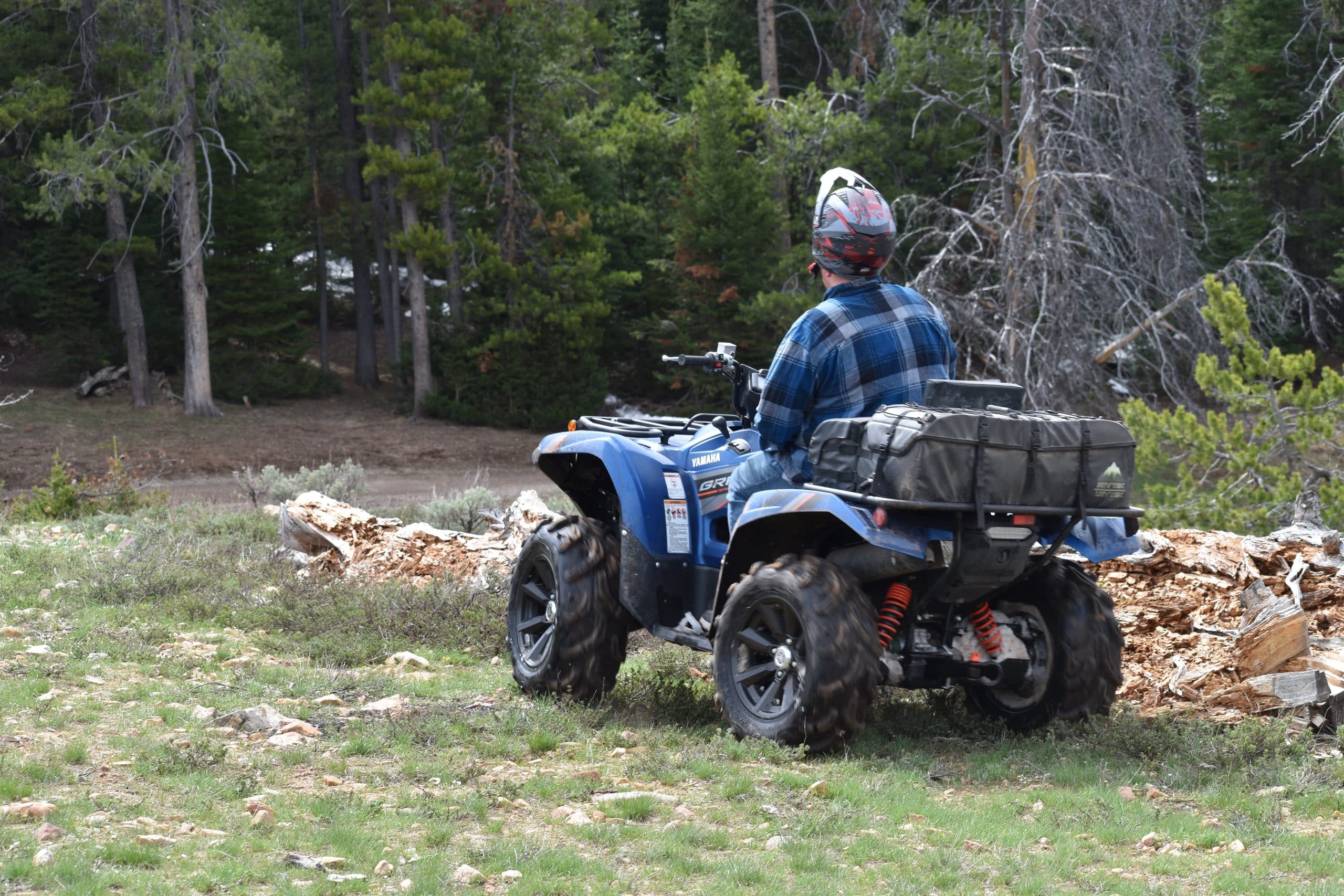Finding the perfect trailers to haul ATV or SxS UTV can seem like a daunting task. With so many options available, it’s easy to get overwhelmed looking for your ATV hauler trailer. But fear not!
This comprehensive guide will walk you through the process of selecting, customizing, and purchasing or renting to own the ideal ATV trailer for your needs. Whether you’re a weekend warrior or a professional racer, this guide offers valuable insights and tips to ensure your off-road adventures with trailers to haul ATV are safe, enjoyable, and hassle-free.
Summary of Trailers to Haul ATV
- Select the ideal ATV trailer type based on towing capacity and features like tie-down points, ramps, and wheel chocks.
- Consider steel vs. aluminum material when selecting an ATV trailer according to needs & budget.
- Follow legal requirements & safety guidelines for proper loading/securing techniques during transport for a safe journey.
Selecting the Ideal ATV Trailer Type

The first step in selecting the perfect ATV trailer is understanding the towing capacity of your vehicle, as this will dictate the type of trailer you can safely tow. With a wide variety of ATV trailers available, such as open, enclosed cargo, and tilt trailers, it’s essential to choose the right one for your specific hauling needs.
Open Trailers
Open trailers are a popular choice for transporting ATVs and SxS UTVs due to their increased capacity and cost-effectiveness compared to enclosed trailers. They are lightweight, making them suitable for shorter distances, and can accommodate multiple ATVs, perfect for group outings or events.
When selecting an open trailer, consider the following factors:
- Size
- Weight capacity
- Suspension
- Additional features like tie-down points, ramps, and wheel chocks
These factors will ensure a secure and easy loading experience. Remember to always follow safety guidelines and adhere to applicable laws and regulations when using an open trailer to haul your off-road vehicles.
Enclosed Trailers
Enclosed trailers offer a higher level of protection and security for your ATVs or UTVs, making them an excellent choice for long trips and varying climates. They shield your vehicles from:
- Rain
- Snow
- Sun
- Dirt
- Other elements that could potentially damage your off-road toys.
When selecting an enclosed trailer, consider the following factors:
- Size
- Weight capacity
- Suspension
- Brakes
- Tie-down points
- Lighting
- Locks
These factors will help ensure that you have a safe and reliable trailer. It is also important to comply with applicable laws and regulations, as well as secure your cargo and use the necessary safety equipment when towing.
Tilt Trailers
Tilt trailers are specialized products designed for convenient loading and unloading of ATVs, particularly larger vehicles. Featuring ramps or slide ramps, these trailers make it easy to access and secure your off-road vehicles. They also make the best atv dump trailer.
The 83” x 14’ single axle with ATV ramps is an ideal choice for front-loading an ATV, with a second unit parked in the rear, ensuring efficient use of space and hassle-free transportation. Investing in a tilt trailer can save you time and effort, making every off-road adventure more enjoyable.
Material Choices: Steel vs. Aluminum

When selecting an ATV trailer, one important consideration is the choice of material. The two most common materials for ATV trailers are steel and aluminum. Steel trailers offer greater ruggedness, durability, and durability than aluminum trailers. They are more cost-effective and easier to repair, but they are more prone to rust.
On the other hand, aluminum trailers are lightweight, corrosion-resistant, and require less maintenance than steel trailers. However, they are generally more expensive and can be more challenging to repair.
Understanding the benefits and drawbacks of each material will help you make an informed decision based on your specific needs and budget.
Determining the Right Trailer Size
To determine the appropriate trailer size for your ATV or UTV, start by obtaining your vehicle’s technical specifications. A single four-wheeler typically requires a trailer of at least 10 feet in length. When selecting between two trailer lengths, it’s advisable to opt for the longer size to accommodate any additional equipment, such as gas cans and coolers.
The best way of transporting two quads “bumper to bumper” is by using a utility trailer. A 14’ single axle or a 16’ tandem axle trailer should be considered for this purpose. By comparing the trailer size to your vehicle’s specifications and accounting for any extra gear, you’ll find the perfect trailer to safely transport your off-road vehicles.
Essential Trailer Features
When shopping for an ATV trailer, it’s important to look for essential features that will enhance its functionality and ease of use. Key features to consider include:
- Removable or fold-up ramps
- Durable material (such as aluminum)
- Large flotation wheels
- Heavy-duty roller bearings
- 4-stud wheel hubs
These components ensure a secure, stable platform for your ATV or UTV, making loading and unloading a breeze.
Additional features like Ready Rings for multiple tie-down points and fold-in or bi-fold gates offer even more convenience and versatility. By prioritizing these essential features, along with selecting the right radial tires, you’ll be well on your way to finding the perfect trailer for your off-road adventures.
Customizing Your ATV Trailer
ATV trailers offer a range of customization options to enhance their functionality and appearance. With open or enclosed models, steel or all-aluminum construction, and unlimited customizations, you can tailor your trailer to your specific needs.
Popular customizations include integrating racks or storage compartments, Ready Rings for multiple tie-down points, and interior options to maximize usability. When searching for the best ATV trailers for sale, consider these features to find the perfect fit for your needs, including atv utility trailers.
By taking advantage of these customization options, you can create a trailer that not only meets your hauling requirements but also reflects your personal style and preferences.
Purchasing an ATV Trailer
Once you have determined the ideal type, material, size, and features for your ATV trailer, it’s time to make a purchase. When shopping for ATV trailers, consider reputable dealers like Trailer Superstore, which offers:
- A wide selection of trailers
- Financing options
- Repair services
- Knowledgeable staff to help you make the best decision.
Keep in mind factors such as your budget, the quality of the trailer, and any additional services or support the dealer may provide during the sale. By doing your research and consulting with experts, you can ensure a smooth purchasing experience and hit the trails with confidence.
Proper Loading and Securing Techniques
Loading and securing your ATV onto the trailer is crucial for safe transportation. Here are some steps to follow.
- Begin by evenly distributing the weight from left to right, placing the heaviest items first, and ensuring 60% of the weight is in front of the axle and 40% behind.
- To prevent the load from shifting during transport, use straps, chains, or ropes to secure the ATV to the trailer.
- Make sure the size and strength of these securing devices are appropriate for the load.
By following these proper loading and securing techniques, you’ll minimize the risk of accidents and ensure a safe journey to your off-road destination.
Legal Requirements and Safety Tips
Before towing an ATV trailer on public roads, it’s essential to familiarize yourself with the legal requirements and safety tips. Compliance with applicable laws and regulations, such as reflective plates, brakes, and safety equipment, is crucial.
Consult with the towing vehicle manufacturer, the trailer manufacturer, and the local Department of Transportation to ensure you meet all necessary requirements.
By adhering to these legal and safety guidelines, you’ll not only ensure the safe transportation of your off-road vehicles but also protect yourself and others on the road. Learn more from our trailer towing checklist.
Summary
Selecting the perfect ATV trailer may seem overwhelming, but with the right information and guidance, you can find the ideal solution for your off-road adventures. By considering factors such as trailer type, material, size, essential features, and customization options, you can make an informed decision that suits your needs and budget.
Remember to follow proper loading and securing techniques, adhere to legal requirements, and consult with knowledgeable experts to ensure a safe and enjoyable trail experience. Armed with this comprehensive guide, you’re well on your way to discovering the perfect ATV trailer for your next off-road adventure.
Frequently Asked Questions
What size trailer is best to haul an ATV?
For hauling a full-size ATV, it is recommended to opt for a 10-foot model. Two quads can be transported in a 14’ single axle or 16’ tandem axle trailer. This is also a good offroad ATV trailer.
What size trailer do I need to haul 4 ATVs?
For 4 ATVs, a 10 ft single axle or 16 ft tandem axle utility trailer will provide enough room for gas cans, coolers, and other gear. This is also a great option to consider as a UTV offroad trailer.
For nose-to-nose ATV hauling, a 6 x 12 trailer should suffice; alternatively, a minimum length of 16” is recommended if squeezing them together, but 18” will offer more wiggle room.
What size trailer do I need to haul a UTV?
For most UTVs, a 6.5’ x 10’ or 5’ x 12’ trailer will provide adequate room. If you’re planning on bringing additional gear, go up to a 14’ trailer. For multiple UTVs, opt for a 20’ or 22’ tandem axle trailer.
Can you put a trailer on an ATV?
Yes, you can put a trailer on an ATV as long as your owner’s manual says it is rated to tow the combined weight and the hitch is appropriate for the loaded trailer.
Make sure to use a rigid hitch when towing.
What is the difference between open and enclosed ATV trailers?
Open ATV trailers offer lighter construction and affordability, while enclosed ATV trailers provide more protection and are better suited for long trips.
Can I use a dump trailer to haul my ATV?
If you’re looking to haul an ATV using a dump trailer, there are a few factors to consider to determine the best trailer for the job. Here are some points to keep in mind:
- Size and Dimensions: Your dump trailer should be large enough to comfortably accommodate the ATV’s length, width, and height. For most ATVs, a trailer with a bed length of at least 8 feet should suffice. However, always measure your ATV to ensure a proper fit.
- Loading Mechanism: Consider how you will load and unload the ATV. Many dump trailers come with rear doors that can double as ramps, making it easier to drive the ATV on and off.
- Weight Capacity: Ensure the dump trailer’s weight capacity exceeds the weight of your ATV. Most standard ATVs weigh between 400 and 800 pounds, but larger models can exceed this. Remember to consider the weight of any other gear or items you might be hauling with the ATV.
- Stability and Safety: Look for trailers with a low center of gravity to make loading and unloading safer. Some trailers also come with integrated D-rings or tie-down points, allowing you to securely strap down your ATV.
- Floor Material: A non-slip floor material, like textured steel or a wooden floor with traction paint, can prevent the ATV from sliding around during transport.
- Sides: While high sides can be useful for hauling materials like gravel or mulch, they may not be necessary for hauling an ATV and might make loading/unloading a bit more challenging.
- Portability and Storage: If you’re tight on space, consider a trailer that’s compact or has a foldable design for easy storage.
- Brand and Reviews: Opt for a reputable brand and check customer reviews to ensure you’re getting a quality product. Some reputable brands in the trailer industry include Big Tex, PJ Trailers, and Carry-On, among others.
- Cost: Finally, set a budget. While it’s essential to get a durable and reliable trailer, there’s no need to overspend on features you don’t need.
Learn more by reading our Best Dump Trailer Buying Guide.

